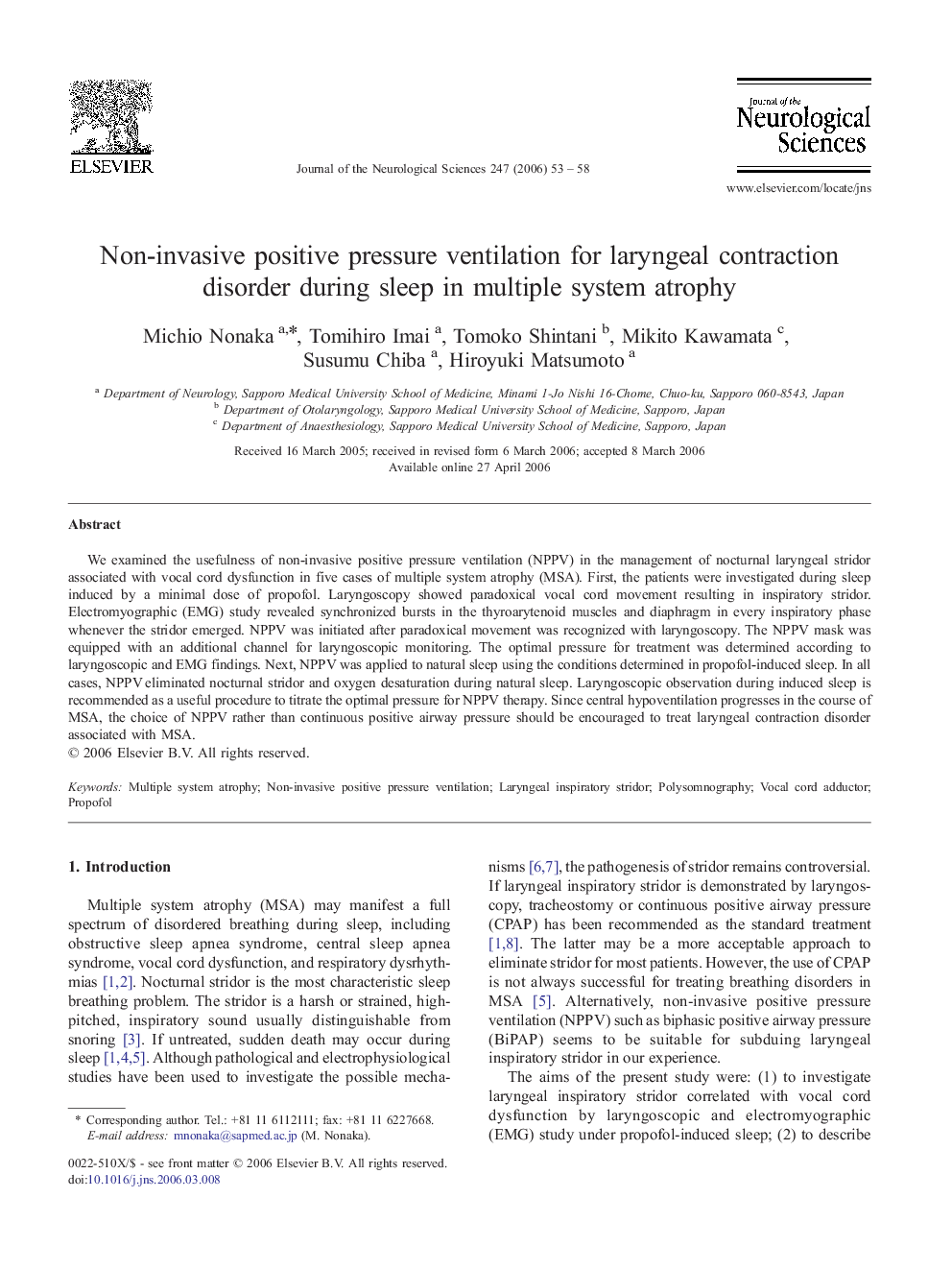| Article ID | Journal | Published Year | Pages | File Type |
|---|---|---|---|---|
| 1916798 | Journal of the Neurological Sciences | 2006 | 6 Pages |
We examined the usefulness of non-invasive positive pressure ventilation (NPPV) in the management of nocturnal laryngeal stridor associated with vocal cord dysfunction in five cases of multiple system atrophy (MSA). First, the patients were investigated during sleep induced by a minimal dose of propofol. Laryngoscopy showed paradoxical vocal cord movement resulting in inspiratory stridor. Electromyographic (EMG) study revealed synchronized bursts in the thyroarytenoid muscles and diaphragm in every inspiratory phase whenever the stridor emerged. NPPV was initiated after paradoxical movement was recognized with laryngoscopy. The NPPV mask was equipped with an additional channel for laryngoscopic monitoring. The optimal pressure for treatment was determined according to laryngoscopic and EMG findings. Next, NPPV was applied to natural sleep using the conditions determined in propofol-induced sleep. In all cases, NPPV eliminated nocturnal stridor and oxygen desaturation during natural sleep. Laryngoscopic observation during induced sleep is recommended as a useful procedure to titrate the optimal pressure for NPPV therapy. Since central hypoventilation progresses in the course of MSA, the choice of NPPV rather than continuous positive airway pressure should be encouraged to treat laryngeal contraction disorder associated with MSA.
